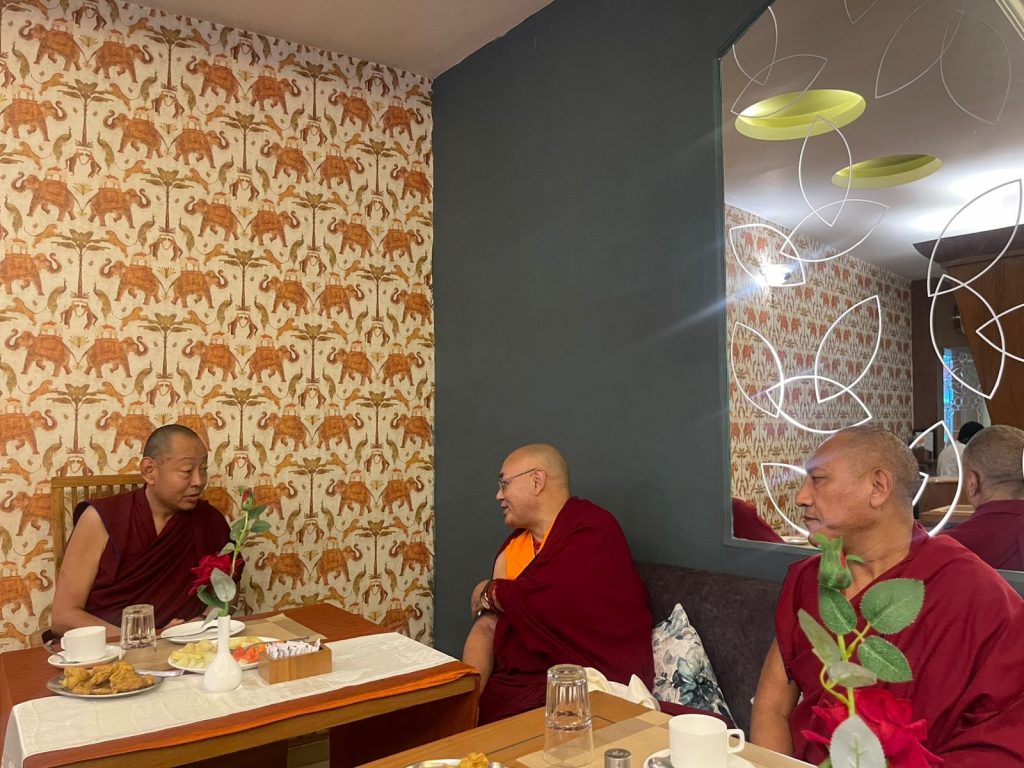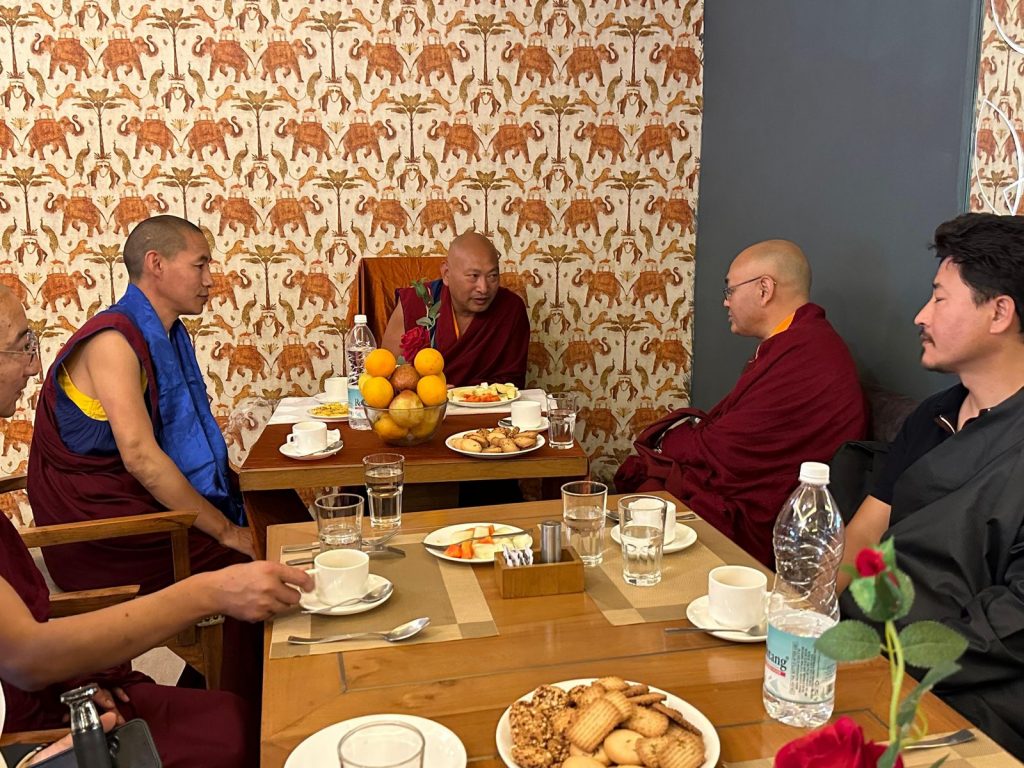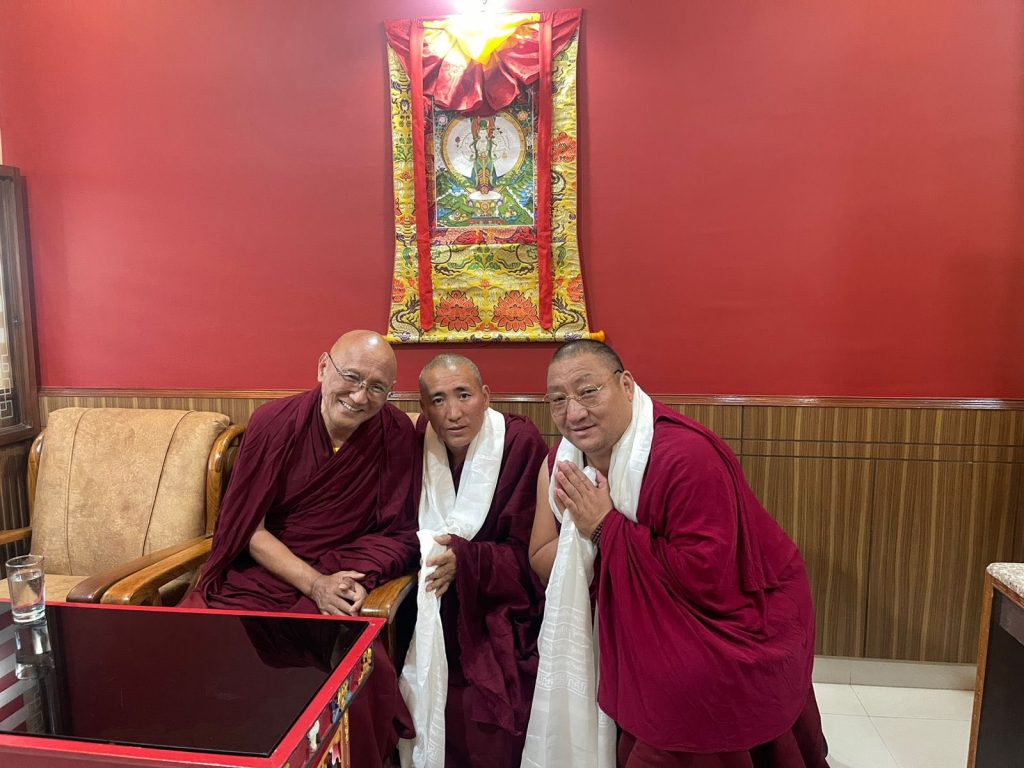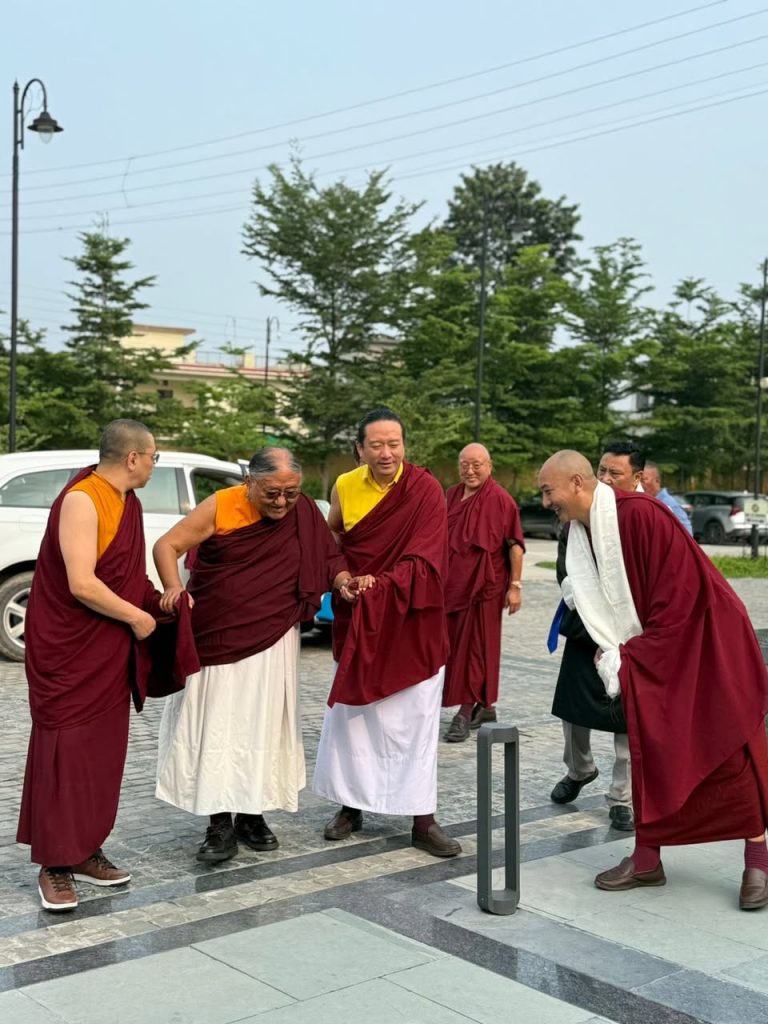
Dharamshala: The 15th founding anniversary of the Global Tibetan People’s Movement for Middle Way Approach was commemorated on 16th September 2023 at the auditorium of the Tibetan Institute of Performing Arts (TIPA).
The celebration was graced with the presence of Kyabje Trisur Samdhong Rinpoche as the Chief Guest, Speaker Khenpo Sonam Tenphel and Sikyong Penpa Tsering as Special Guests, and other guests including Deputy Speaker Dolma Tsering Teykhang, MP Tsering Yangchen, MP Thupten Gyatso, former MPs, heads of governmental and non-governmental organizations, and others.
Speaking at the founding anniversary, the Speaker highlighted the prime objective of founding the Global Tibetan People’s Movement for Middle Way Approach which is to provide support and needed assistance in disseminating awareness on the Middle Way Approach- the official policy of the Central Tibetan Administration which was adopted democratically to resolve the issue of Sino-Tibetan conflict through peaceful means and with equal participation of Tibetan and Chinese counterpart in decision-making, in accordance with the wishes of His Holiness the Dalai Lama.

“Through the mutually-beneficial Middle-Way policy, the Central Tibetan Administration seeks genuine autonomy for the three traditional provinces of Tibet, given the fact that Tibet was an independent nation, and does not accept the status quo of Tibet under the People’s Republic of China and the splitting of Tibet’s areas by Chinese government. The awareness on the MWA can be spread in three ways, firstly on the benefits of it to China and Chinese people, secondly on its benefits to Tibet and Tibetans, and thirdly on its benefits to the neighbouring countries. And with the changing political situation across the globe, many different groups of allies are formed and one of them is QUAD – a strategic security dialogue between Australia, India, Japan and the United States. So, we need to think if the MWA becomes successful what benefits it can bring to the world. ”
“The Middle Way Approach strives to peacefully resolve the Sino-Tibetan conflict with dialogue and negotiation and the Central Tibetan Administration will continue to work on that and the NGOs especially the Global Tibetan People’s Movement for Middle Way Approach should keep up with their work on disseminating awareness on the MWA. Likewise, the MWA neither causes negative effects to the historical status of Tibet nor to the future of Tibet.”

“As we have NGOs seeking independence and people seeking independence for Tibet, the Global Tibetan People’s Movement for Middle Way Approach should hold discussions with them as it would be very beneficial.”
The Speaker then spoke on the evolution of the Middle Way Approach and explained that His Holiness the Dalai Lama envisioned a win-win proposition to solve the issue of Tibet in around 1974. He held a series of discussions with the Speaker and the Deputy Speaker of the Tibetan Parliament-in-Exile (TPiE), the Kashag, and trusted friends of Tibet. In 1997, the Tibetan Parliament-in-Exile, then called the Assembly of Tibetan People’s Deputies, through a resolution adopted the MWA and apprised it to His Holiness the Dalai Lama. His Holiness the Dalai Lama in His statement next year on the Tibetan Uprising day stated pursuing a mutually agreeable solution to the Tibetan issue through negotiations in a spirit of reconciliation and compromise and His conviction that the approach is the most beneficial and practical course in the long run.
“The Tibetan Parliament-in-Exile in its official statements, on the Tibetan uprising days, His Holiness the Dalai Lama’s birth anniversaries, Tibetan democracy days, and on the anniversaries of the conferment of Nobel Peace Prize on His Holiness the Dalai Lama, calls on China to hold dialogue to resolve the Sino-Tibetan conflict through the Middle Way Approach. And the TPiE also mentions the MWA during its advocacy tours. However, since 1997, we have been unable to provide a positive environment for dialogue with the Chinese counterpart through the MWA. Therefore, we need to analyse the reason and work on that.”

“Thinking from another perspective, the MWA is the official policy of the Central Tibetan Administration, that has been envisioned by His Holiness the Dalai Lama, and has support of Tibetan people. However, if we study the policies of China, In 1951, the Chinese government forced the 17-point agreement upon Tibetans and for the next 8 years Tibetans were left with no choice but to “handle fire even as it was being burned by it” in an effort to seek a level of peaceful coexistence with the Chinese occupying authorities. If we take the example of India, the Panchsheel agreement was signed between India and China to further the economic and security cooperation in 1945. However, China attacked India in 1962. In 1997, Hongkong was handed over to China by Britain and the situation in Hongkong has deteriorated since then. Therefore, it’s important for us to contemplate on how we can trust the leadership of China.”
“Likewise, previously some researchers have raised questions and doubts on China’s relation with the world, on Sino-Tibetan conflict, and on decisions of China’s internal matters if Xi Jinping gets a third term as president. The Chinese government continues to face internal conflicts, as a single individual consolidates the power of ruling the entire nation, prepares his successors, and maliciously attacks people who do not have the same political ideology as him. The situation in China with severe restrictions and lack of transparency has become serious and difficult for numerous individuals including China’s Foreign Minister, Defence Minister, and others.”

The Speaker advised the attendees to be liberal in holding different political ideologies and lead the community with open mindedness and gave example of Mahatma Gandhi who wore western cloths when he went to university in London and at the same time draped traditional dhoti and employed non-violent resistance in the campaign for India’s independence from British rule.
At the event, top three winners of the writing competition organized by the Global Tibetan People’s Movement for Middle Way Approach were awarded with prizes and a book called ‘Umaylam’ containing the compiled compositions of top thirteen writers was launched by the Chief Guest.
Special Guest Speaker Khenpo Sonam Tenphel presented prizes to the top thirteen winners of the writing competition and Special Guest Sikyong Penpa Tsering awarded prizes to the three members of the writing competition’s selection committee.
The Chief Guest Kyabje Trisur Samdhong Rinpoche and Special Guest Sikyong Penpa Tsering also addressed the event.









